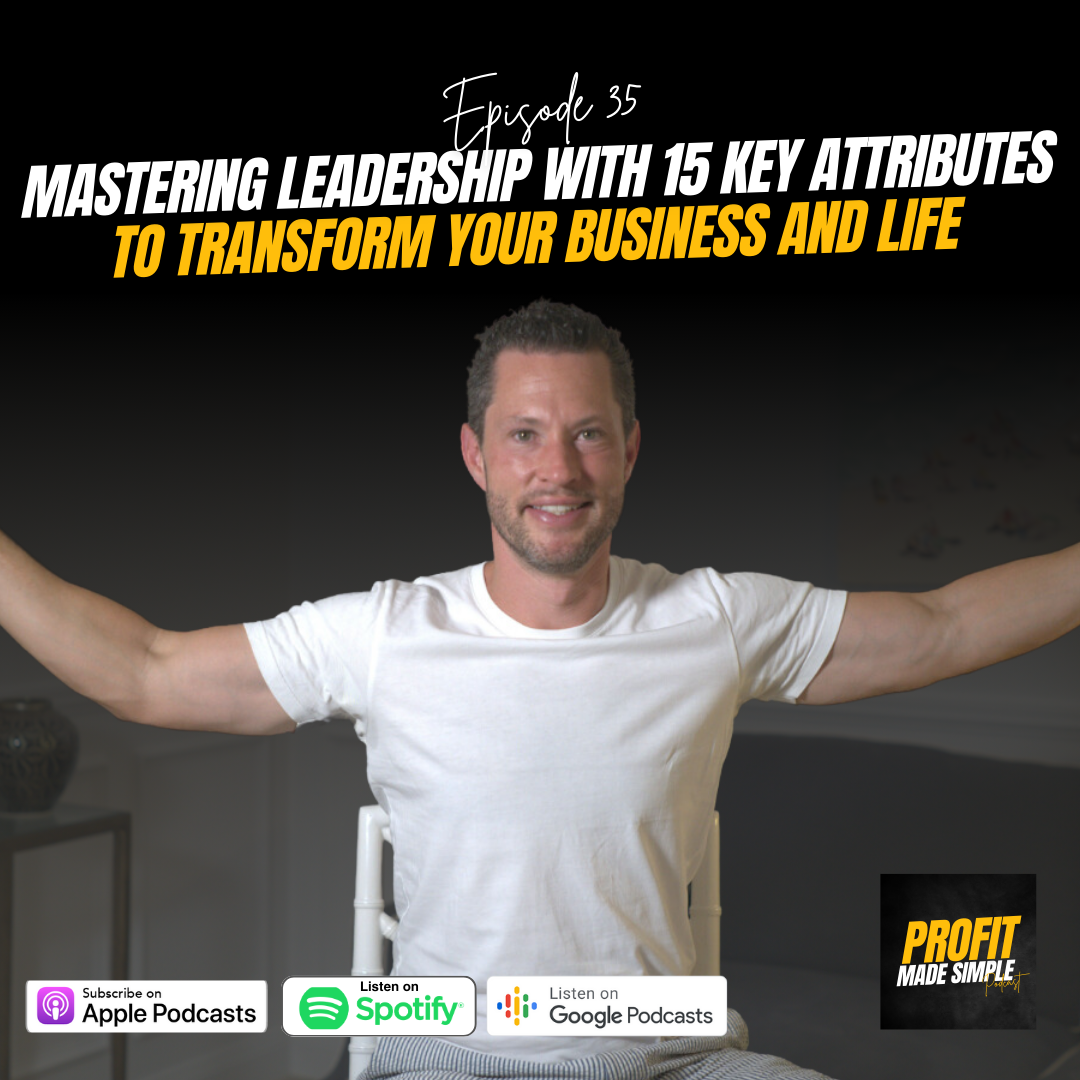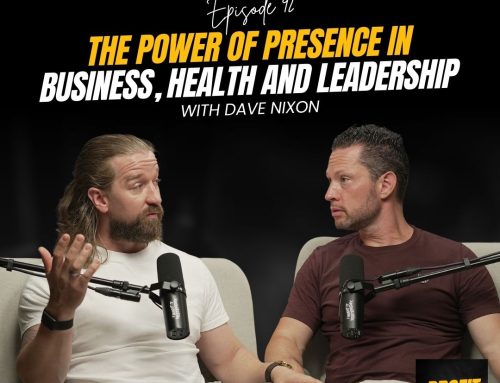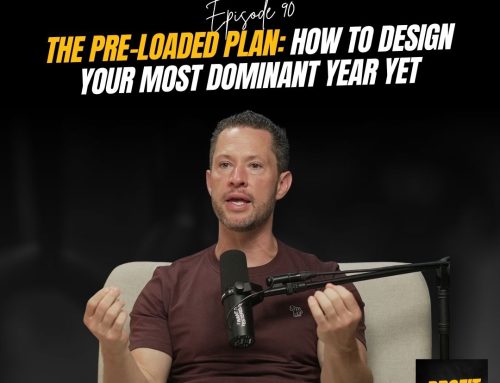To grow a successful fitness business, it’s essential to make the identity shift from technician to operator.
In this journey, leadership is the defining skill that empowers you to scale your operations, inspire your team, and impact your community.
This blog post is based on insights from the latest ‘Profit Made Simple’ podcast episode, will introduce you to leadership principles and a valuable self-assessment tool to help you evaluate and strengthen your leadership abilities.
Why Leadership is Crucial for Fitness Entrepreneurs
Being an effective leader is a game-changer. Leadership enables you to influence, guide, and inspire others toward a shared goal, helping you build a team that not only meets targets but also thrives on personal growth, accountability, and trust.
By stepping into a leadership role, you empower your business to expand beyond yourself, creating a structure that can scale sustainably.
If you’re ready to assess your leadership strengths and make impactful changes, consider the following steps and insights from the latest ‘Profit Made Simple’ podcast episode.
The Leadership Audit: Assess and Elevate Your Skills
One powerful tool shared in this podcast is the Leadership Audit.
This audit is a self-assessment that encourages you to rate yourself on 15 essential leadership attributes.
Honesty and reflection are critical here—assess yourself thoroughly to discover where your skills shine and where improvement is needed.
The audit evaluates areas like visionary thinking, accountability, communication skills, and emotional intelligence.
Here’s a closer look at some of these attributes and why they matter:
1. Visionary Thinking
Leaders inspire their teams with a clear and compelling vision. Visionary thinking means clearly articulating a purpose that motivates your team toward long-term success. Reflect on Steve Jobs’ legacy—his vision for Apple wasn’t merely about selling products; it was about reshaping lifestyles through technology.
How compelling is your vision for your fitness business?
2. Accountability and Ownership
Great leaders own both their successes and failures. Accountability means accepting responsibility and not blaming others when challenges arise. This mindset shift can be transformative—when leaders accept responsibility, they empower their teams to do the same, creating a culture of trust and continuous improvement.
3. Building Trust, Empathy, and Care
Trust and empathy are foundational in building strong relationships with your team. For instance, Starbucks’ founder, Howard Schultz, created a unique culture by prioritising employee well-being.
In a fitness business, this might mean listening to your trainers’ concerns, offering growth opportunities, and fostering a supportive work environment.
4. Emotional Intelligence and Vulnerability
Emotional intelligence allows you to manage your emotions and respond empathetically to others, particularly during high-pressure moments.
Vulnerability here doesn’t mean oversharing but rather being honest about mistakes and willing to seek help.
A leader who models this will inspire authenticity and resilience within their team.
5. Empowering Others and Delegation
Delegation is about trusting your team to handle responsibilities, giving them ownership over results. Consider the mantra “Not how, but who,” as popularised by Dan Sullivan.
Instead of shouldering every task yourself, focus on finding the right people to take on those responsibilities, allowing you to prioritise high-level decisions and growth.
6. Adaptability and Problem Solving
In a fast-evolving industry like fitness, adaptability is vital. Netflix’s success over Blockbuster highlights the importance of being flexible and responsive to change.
As a fitness entrepreneur, adapt your services, class schedules, or marketing strategies in response to trends and customer needs.
7. Communication Skills
Effective communication is essential for aligning your team with your business goals.
Miscommunications can lead to inefficiency and dissatisfaction.
Commit to being clear, concise, and constructive in your feedback, setting an example for your team to do the same.
How to Use the Leadership Audit in Your Business
To make the most of the Leadership Audit, rate yourself on a scale of 1 to 5 for each attribute. A score above 60 indicates strong leadership skills, while scores between 45 and 59 suggest you have solid skills but with room for improvement. Scores below 30 indicate a need for dedicated growth efforts.
Be Honest: Leadership growth requires self-reflection. Take time to evaluate each attribute earnestly.
Set Improvement Goals: Based on your scores, choose a few areas to focus on for the next quarter.
Follow Up: Revisit the audit in six months to see your progress.
Leadership: The Pathway to Impact and Profit
Developing your leadership skills is more than just a pathway to profit. It’s about creating a culture of growth, accountability, and trust in your fitness business.
As you make the shift from technician to operator, each step in this journey will bring you closer to building a business that not only scales but makes a lasting impact on your community.
Use the Leadership Audit as a tool for continuous improvement, setting a powerful example for your team and inspiring them to reach new heights alongside you.
Embrace these strategies, and you’ll find your influence, impact, and business profits soar.
Ready to become the leader your fitness business needs?
Complete the Leadership Audit today and take your first step toward remarkable growth.







Leave A Comment